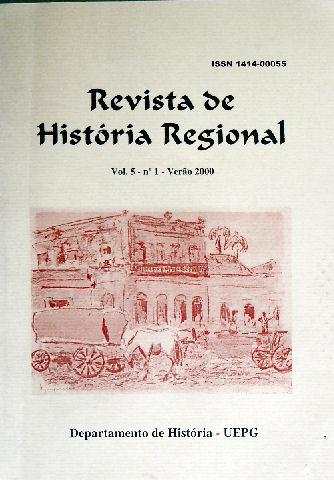DIMENSÕES DE ANÁLISE DA VERTICALIZAÇÃO: EXEMPLOS DA CIDADE MÉDIA DE PONTA GROSSA/PR
Keywords:
geografia urbana, espaço urbano, verticalização, Ponta Grossa, Paraná, Urban geography, urban space, verticalizationAbstract
This study tries to identify and analyze the different dimensions of the urban verticalization process, based on a case study from the middle-sized town of Ponta Grossa in Paraná, Brazil. The historical dimension is presented through the description of the temporal evolution process of the city where the verticalization process has rapidly transformed the urban landscape, resulting in an increasing loss of the urban memory, which was linked to the buildings of traditional styles. The analysis of the spatial dimension investigates the distribution of vertical constructions in the city. In general, the concentration of vertical constructions was first observed in the central area of the city and, recently, spread out to the periphery in a deconcentrated-concentrated form. The social dimension shows a high grade of social diversity among vertical constructions. A continuous substitution of social classes can be observed in these buildings, as they are apt to downgrading through material degradation. The symbolic dimension reveals how modernity, materialized by vertical constructions, can debilitate traditional local identities through the transfer of lifestyles from metropolitan cities to middle-sized towns. The economic dimension investigates the role of producers and consumers of the urban verticalized space. In this context an increasing diversification of these agents can be observed. The dimension of urban planning refers to the urban legislation framework and the control mechanism of the verticalization process in the city. The legislation is the result of demands of the dominant class and it is common that the real estate market seeks support from unspecified or incomplete legislation tools.Downloads
Downloads
Published
How to Cite
Issue
Section
License
Copyright (c) 2007 Cicilian Luiza Löwen Sahr

This work is licensed under a Creative Commons Attribution 4.0 International License.
Autores que publicam nesta revista concordam com os seguintes termos:
a) Os autores mantêm os direitos autorais e concedem à revista o direito de primeira publicação, com o trabalho simultaneamente licenciado sob a Creative Commons Attribution License que permite o compartilhamento do trabalho com reconhecimento da sua autoria e publicação inicial nesta revista.
b) Os autores são autorizados a assinarem contratos adicionais, separadamente, para distribuição não exclusiva da versão publicada nesta revista (por exemplo, em repositórios institucionais ou capítulos de livros), com reconhecimento da sua autoria e publicação inicial nesta revista).
c) Os autores são estimulados a publicar e distribuir a versão onlline do artigo (por exemplo, em repositórios institucionais ou em sua página pessoal), considerando que isso pode gerar alterações produtivas, bem como aumentar o impacto e as citações do artigo publicado.
d) Esta revista proporciona acesso público a todo o seu conteúdo, uma vez que isso permite uma maior visibilidade e alcance dos artigos e resenhas publicados. Para maiores informações sobre esta abordagem, visite Public Knowledge Project, projeto que desenvolveu este sistema para melhorar a qualidade acadêmica e pública da pesquisa, distribuindo o OJS assim como outros softwares de apoio ao sistema de publicação de acesso público a fontes acadêmicas.
e) Os nomes e endereços de e-mail neste site serão usados exclusivamente para os propósitos da revista, não estando disponíveis para outros fins.

Este obra está licenciado com uma Licença Creative Commons Atribuição 4.0 Internacional.

Este obra está bajo una licencia de Creative Commons Reconocimiento 4.0 Internacional.






